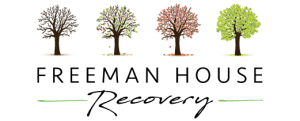Dialectal Behavioural Therapy
Understanding DBT
Dialectical Behavior Therapy (DBT) is a specialized form of cognitive-behavioral therapy that was originally developed to treat individuals with borderline personality disorder. However, its effectiveness extends beyond that, making it a valuable tool in addiction recovery. At Freeman House Recovery, we integrate DBT into our comprehensive treatment programs to address emotional dysregulation, self-destructive behaviors, and substance use.
Key Principles of DBT
Dialectics:
- DBT emphasizes finding a balance between acceptance and change.
- Clients learn to accept themselves while actively working toward positive changes.
Four Modules:
- DBT consists of four skill-building modules:
- Mindfulness: Focusing on the present moment without judgment.
- Distress Tolerance: Coping with intense emotions and crises.
- Emotion Regulation: Managing emotions effectively.
- Interpersonal Effectiveness: Improving communication and relationships.
- DBT consists of four skill-building modules:
Individual and Group Sessions:
- DBT combines individual therapy with group skills training.
- Clients learn practical skills and practice applying them in real-life situations.
How DBT Benefits Addiction Recovery
Emotion Regulation:
- DBT equips clients with tools to manage intense emotions without resorting to substance use.
- It helps prevent impulsive behaviors during emotional distress.
Distress Tolerance:
- Clients learn healthy ways to cope with cravings, triggers, and stress.
- DBT provides strategies to tolerate distress without turning to substances.
Interpersonal Skills:
- DBT enhances communication, assertiveness, and conflict resolution.
- Clients build healthier relationships and support networks.

